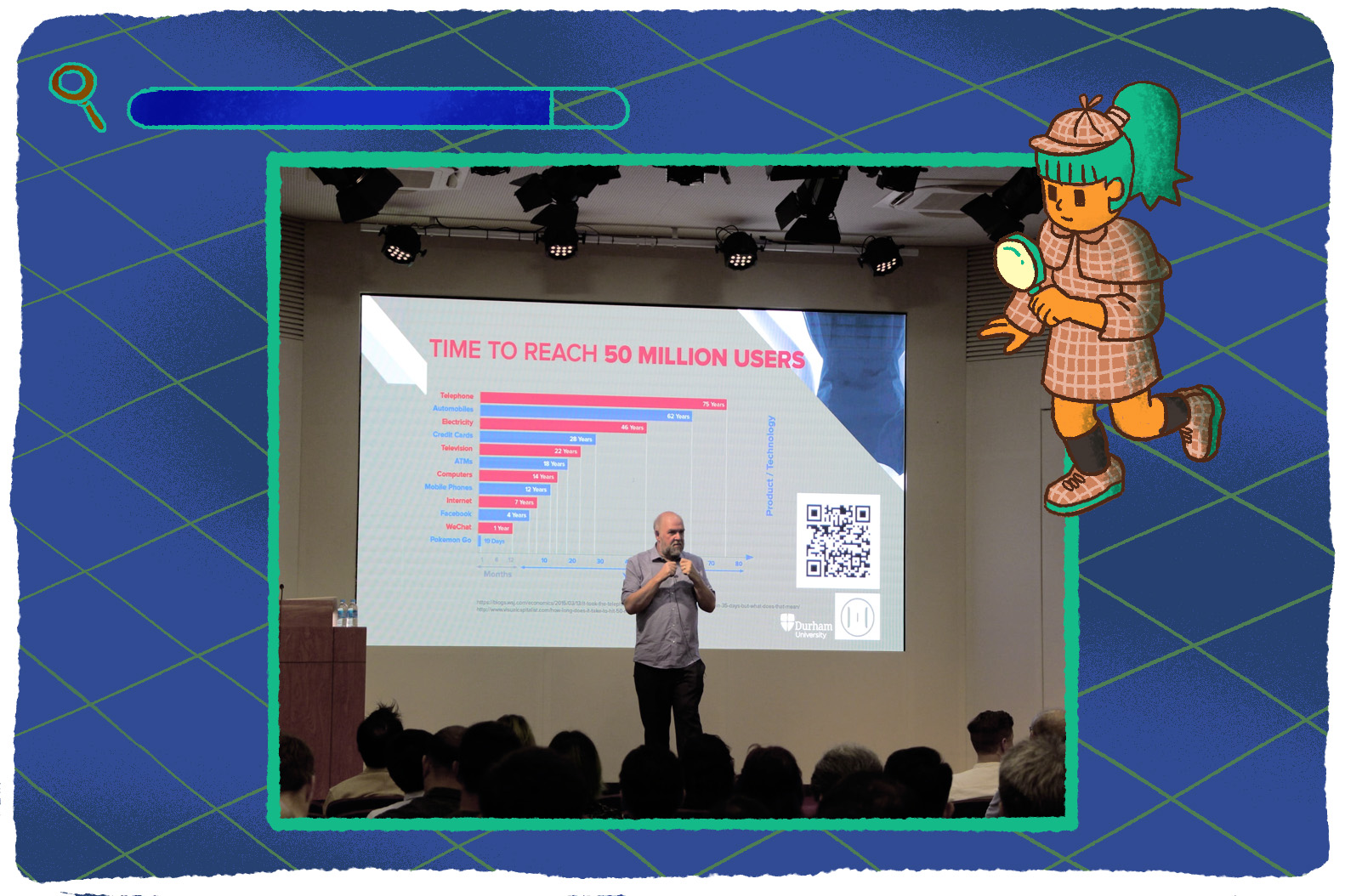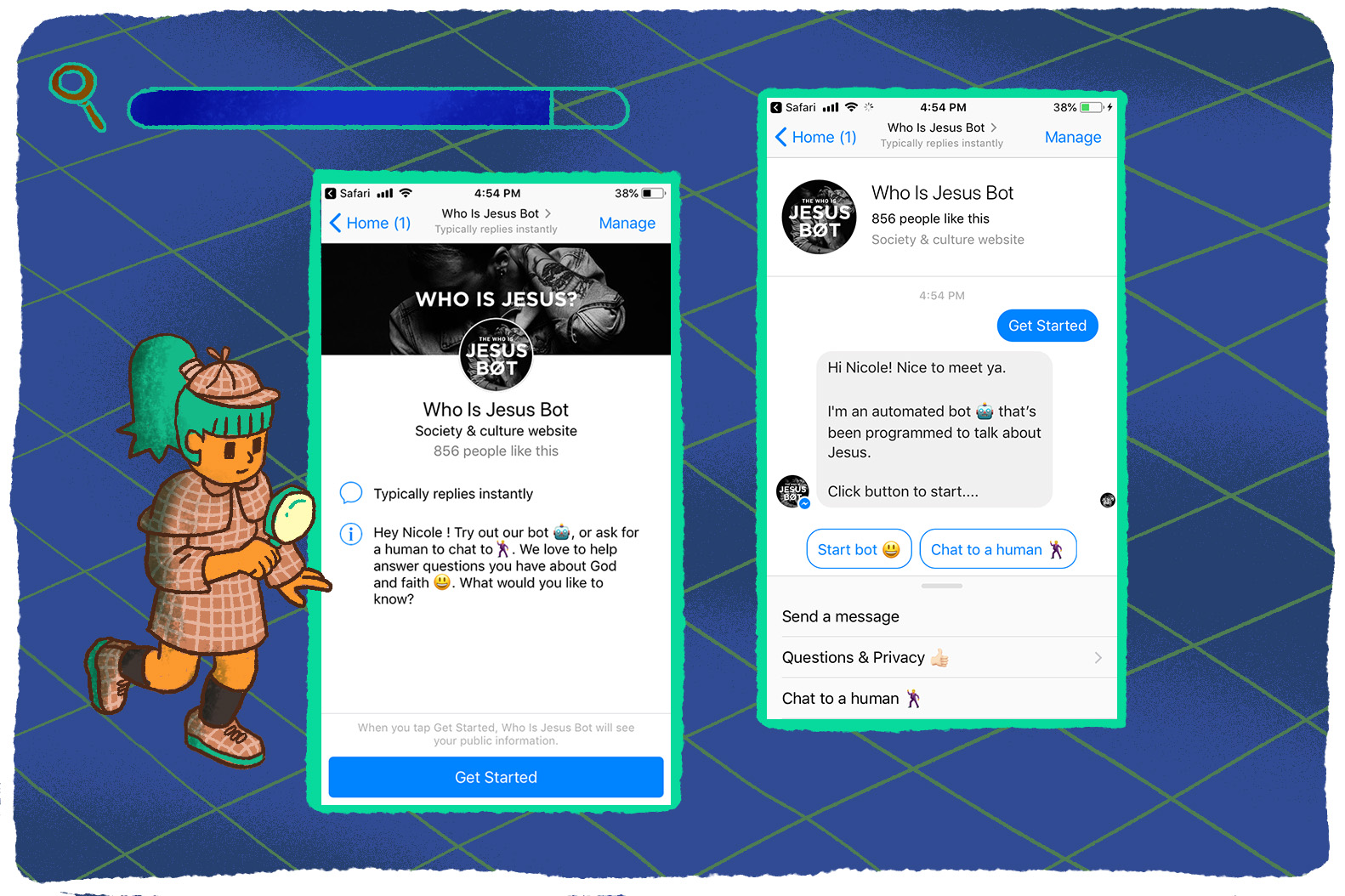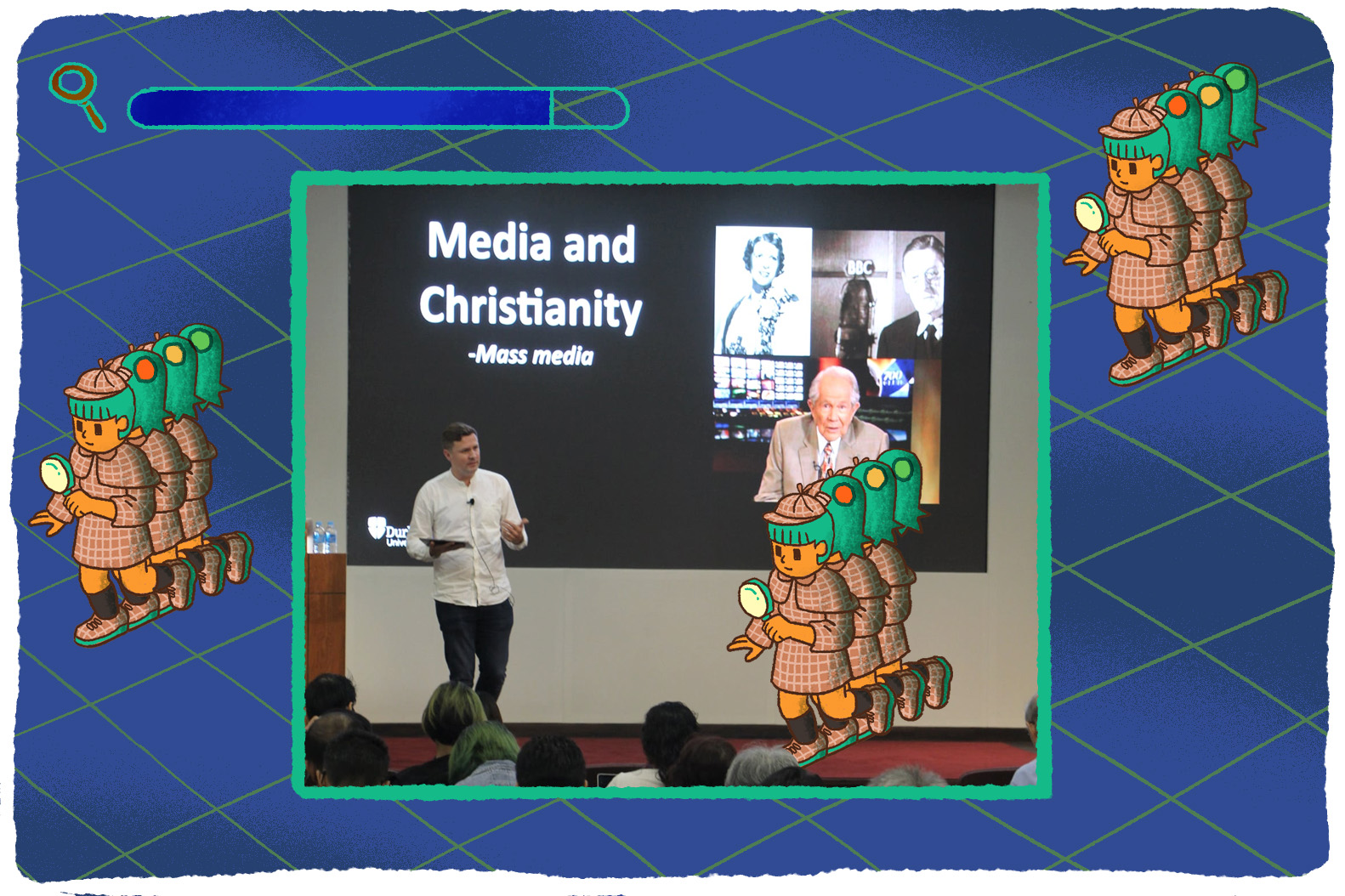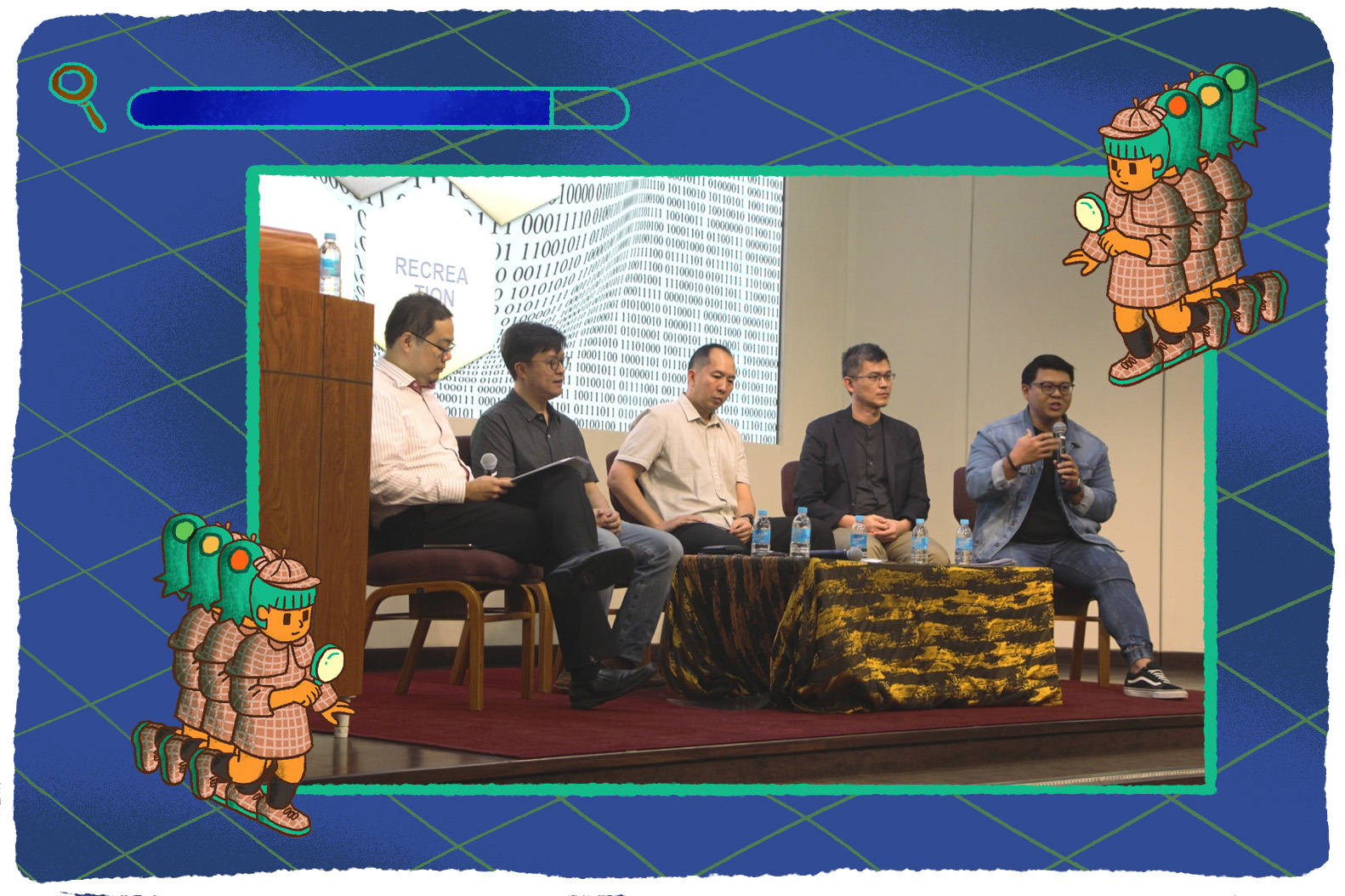On April 2, 2018, global superstar Justin Bieber uploaded a post to Instagram, a screenshot boldly declaring: “JESUS HAS CHANGED MY LIFE. EASTER IS NOT ABOUT A BUNNY, IT’S A REMINDER THAT MY JESUS DIED ON THE CROSS FOR MY SINS AND THEN ROSE FROM THE DEAD DEFEATING DEATH…”
Out of Bieber’s 120 million followers on Instagram, this post amassed over 3 million likes and 100,000 comments.
When raised as an example by Dr Jonas Kurlberg from Durham University’s Centre for Digital Theology during ChristianX 2019: The Church in a Digital World, his message was clear.
Our world is changing, the media’s influence on religion is growing and we have new gatekeepers in the digital world.

As consumers, our lives are being rapidly mediatised. According to research presented, the telephone took 75 years to reach 50 million users, mobile phones took 12 years, Facebook took four years and Pokémon Go took only 19 days.
The speed at which people can be impacted will only continue to inflate from here on out.
“Where is God in all of this?” wondered Reverend Dr Pete Phillips, also from Durham University’s Centre for Digital Theology.
And what does it mean for Christians?
1. REALISE THE POSSIBILITIES
Among the videos played during the conference, this one left a particularly lasting impression. Having accidentally donned a VR headset which has a flight simulator running, the ostrich starts imagining it is airborne and attempts to fly.
Samsung may have been trying to promote its Gear VR headset with the#DoWhatYouCant campaign, but there’s something that we can also learn from it.
“With tech, we can do the things that we can’t do,” pointed out Dr Phillips.
I found this to be true. As the conference progressed, my ideas of what Christianity could look like in the digital world began to grow. We may not be able to go door-to-door to every house to spread the Gospel, but we can find our way into people’s hearts through social media.
Evangelism through artificial intelligence? The Who is Jesus Bot is a Facebook Messenger chatbot that has been programmed to answer questions about God. Spread the Good News through memes? Boiling Waters presents the Christian view on relationships in an honest, witty and hilarious way.

Dr Kurlberg said: “If you want to communicate in this age, you have to relate your message so that it works in the media culture.”
Going digital may not just be a good thing to do to stay relevant – going digital may actually be necessary because that’s where God is, added Dr Phillips.
God is omnipresent (Ephesians 4:6), and in the case of the chatbot, the Holy Spirit has somehow used computing, or the code, as a mediation of His presence in the world.
“The earth is the Lord’s, and everything in it, the world, and all who live in it; for he founded it on the seas and established it on the waters.” (Psalm 24:1-2)
Going back to his rhetorical question on where God is amid the flourishing of digital technology, Dr Phillips said: “He’s there in the digital space… flooding it with His presence.”
2. RECOGNISE OUR RESPONSIBILITIES
If social media has become one of the main channels of influence in this digital age, then it only means that users like us have become the new gatekeepers of religion.
While the image and perception of religion was mainly guarded by religious institutions in the past, we now have “new gatekeepers in the digital world” who determine what kind of content gets consumed by a mass audience, said Dr Kurlberg.

The rise of social media has become a new kind of democracy – a leveller that makes the common man more powerful than ever before. Viral videos have catapulted people to Internet fame, while personal Instagram accounts often have hundreds of followers.
I am reminded of the famous Spider-Man quote, “with great power comes great responsibility”.
The massive influence we have may also tempt us into augmenting our own lives for an online audience. Is the “us” in real life different from the “us” online? Would we be reluctant to share the struggles we have as a believer in fear of damaging our perfect online persona?
When we fail to commit to authenticity, we’re not only misleading people, but also missing an opportunity to influence others by our sincerity.
As it stands, a recent study found that the top reason why young adults in Singapore doubt the spiritual is because of the “hypocrisy of religious people”.
Dr Kurlberg explained that when it comes to digital missions, authenticity needs to be a key pillar. In fact, a life that makes sense may be even more powerful than a million intellectual arguments.
Post Bible verses on your Instagram, but gossip behind someone’s back? Such conflicting behaviour can seep into our different identities, all of which are seen clearly by others, but more importantly, God.
In a panel discussion, Jeffrey Aw, Youth Pastor of Bethesda (Bedok-Tampines) Church, cautioned: “We live in a physical, virtual and spiritual world together… There’s no divide.”

Our real-life selves are inextricably linked to our personas online, which are all seen fully in God’s eyes. Therefore, whatever principles we have should apply in all three worlds.
Take time to know your values and priorities, as well as how you can behave in a way that aligns them physically, digitally and spiritually. God knows exactly who you are, no matter where you are.
3. REMEMBER WHY WE DO WHAT WE DO
So you’ve situated yourself comfortably online. Your phone is chock-full of Bible reading plans, your Instagram feed colourful with calligraphed verses, friends are engaging with your posts…
When we are immersing ourselves in digital spaces, it’s easy to be caught up in a numbers game. How many people viewed my post today? How many followers do I have? Over time, we may find ourselves losing focus.
“Evangelism cannot be just about getting numbers in. Is there a risk that we start objectifying people — that they become numbers that we gain?” warned Dr Kurlberg. “That’s against the heart of the Gospel, which is relational.”
Digital media is a powerful tool to minister to others in this day and age, but we must bear in mind that it’s just a medium to bring people into a relationship with God.
It’s important to remember that ultimately, it is the Holy Spirit – and not humans – that leads people to God. Instead, what we can do is offer as many platforms and opportunities for people to know God, all while surrendering the outcomes.
As Simon Seow, Cru’s global digital strategist, said: “The key piece for me is to journey together (with those who have not known Jesus). Where are they? Join them on a journey, take them one step further.”
In that way, these digital spaces can be seen as complementary to the physical church and community of believers.
“And let us consider how we may spur one another on toward love and good deeds, not giving up meeting together, as some are in the habit of doing, but encouraging one another – and all the more as you see the Day approaching.” (Hebrews 10:24-25)
“Perhaps we need to develop this kind of sense of being a blended church… The very best of what it means to be incarnated (in human form) and the very best of what it means to be digital. Blended – not one or the other,” suggested Dr Phillips.
- Do you share your faith online? If yes, how? If no, why?
- Is there a disconnect between your online and offline personas?
- How can you better use technology to magnify God?
- What do you envision Church in a digital world to look like?









